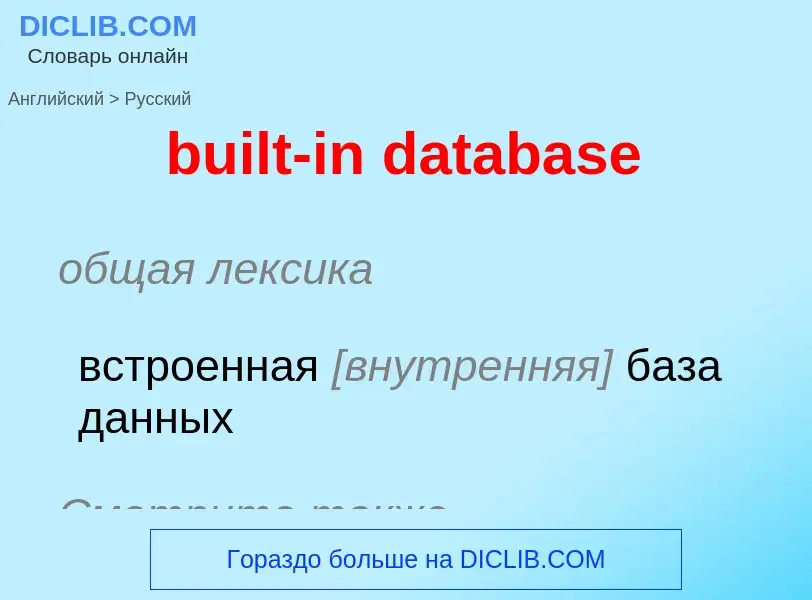Μετάφραση και ανάλυση λέξεων από την τεχνητή νοημοσύνη ChatGPT
Σε αυτήν τη σελίδα μπορείτε να λάβετε μια λεπτομερή ανάλυση μιας λέξης ή μιας φράσης, η οποία δημιουργήθηκε χρησιμοποιώντας το ChatGPT, την καλύτερη τεχνολογία τεχνητής νοημοσύνης μέχρι σήμερα:
- πώς χρησιμοποιείται η λέξη
- συχνότητα χρήσης
- χρησιμοποιείται πιο συχνά στον προφορικό ή γραπτό λόγο
- επιλογές μετάφρασης λέξεων
- παραδείγματα χρήσης (πολλές φράσεις με μετάφραση)
- ετυμολογία
built-in database - translation to Αγγλικά
Смотрите также
['deitə()beis]
программирование
информационная база
база данных
дипломатия
исходные данные (на переговорах о разоружении)
Ορισμός
Βικιπαίδεια
An in-memory database (IMDB, or main memory database system (MMDB) or memory resident database) is a database management system that primarily relies on main memory for computer data storage. It is contrasted with database management systems that employ a disk storage mechanism. In-memory databases are faster than disk-optimized databases because disk access is slower than memory access and the internal optimization algorithms are simpler and execute fewer CPU instructions. Accessing data in memory eliminates seek time when querying the data, which provides faster and more predictable performance than disk.
Applications where response time is critical, such as those running telecommunications network equipment and mobile advertising networks, often use main-memory databases. IMDBs have gained much traction, especially in the data analytics space, starting in the mid-2000s – mainly due to multi-core processors that can address large memory and due to less expensive RAM.
A potential technical hurdle with in-memory data storage is the volatility of RAM. Specifically in the event of a power loss, intentional or otherwise, data stored in volatile RAM is lost. With the introduction of non-volatile random-access memory technology, in-memory databases will be able to run at full speed and maintain data in the event of power failure.


![Basic structure of navigational [[CODASYL]] database model Basic structure of navigational [[CODASYL]] database model](https://commons.wikimedia.org/wiki/Special:FilePath/CodasylB.png?width=200)


